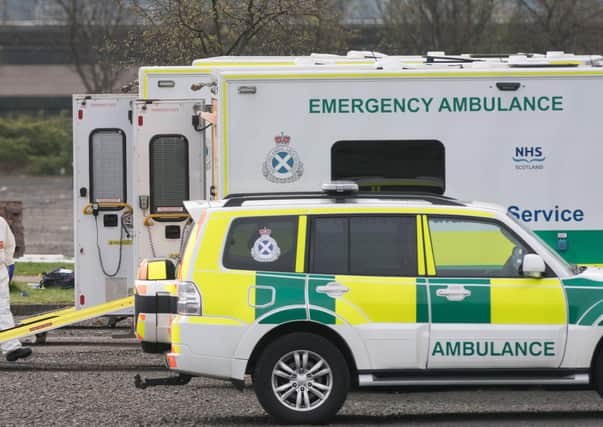Pauline McNeill: Why we must not forget to care for those who lose family to Covid-19


If there is a case to make us think about the gravity of Covid-19 and the impact it has on people’s rights, it is the heart-breaking circumstances one of my constituents.
I will refer to her as Dianne and the situation she found herself in. Her partner of 17 years, David, was taken to hospital by ambulance from their home while she dashed home from work to see him He had felt unwell that morning and was not at work. She dialled 999 for an ambulance after speaking with the GP.
Advertisement
Hide AdAdvertisement
Hide AdWhat followed was 13 days of self-isolation, alone, while David lay in a hospital bed. Over the course of that fortnight, my constituent received one phone call a day about her husband’s condition. She was not allowed to call in herself. As the days passed, her husband became sicker. His condition never improved and, unfortunately, he died without Dianne by his side.
I have read about many people who have been allowed to visit a loved one in hospital or have at least been reassured, if they died, that they did not do so alone. In some cases, hospital staff have made use of technology to connect patients with their family and friends or allowed people to ask doctors and nurses questions.
My constituent was not offered anything like that. She patiently waited until around 3pm each day to hear of this condition, pacing the floor until the call came. Not another human being was allowed into her home to console or help her, such is the cruelty of Covid-19. When she got the fatal call, a nurse known as Doreen said she would stay with him and hold his hand when they disconnected the ventilator. Dianne says she will be eternally grateful to Doreen for what she did to give her some comfort.
As we face unprecedented times, there will naturally be differences in the type and standard of care people will experience.
What is deeply concerning is that these differences will have a profound impact on the most vulnerable patients and families’ ability to stand up for their own rights, in cases like the one I’ve highlighted that a patient’s family was not able to ask pertinent questions about his condition or care. We cannot forget the likely long-term impact this will have on those bereaved.
At the point of writing this, my constituent is grieving for her husband without any real support from local services. The only care she has been afforded is a five-minute phone call with her GP, who recommended she refer herself to Breathing Space – a free, confidential phone and web-based service for people in Scotland experiencing low mood, depression or anxiety.
One thing she has in common with many others who have experienced a bereavement due to Covid-19 is that she does not have a right to be tested to see if she is at risk herself.
She was unsure of the questions she could ask of staff given she could not be with her partner in his final moments.
Advertisement
Hide AdAdvertisement
Hide AdLike everyone else in this country, she should have the right to personal support in the wake of her husband’s sudden death. She should have the right to not have to suffer in isolation. She should have the right to elect to be tested for Covid-19 to ease the worries she and her family face about her own health.
There can nothing braver than the work our NHS staff are doing in our hospitals to save lives. My point is very simply about the rights of patients and the rights of their families. There must be a consistency and compassion in how we protect people’s right to advocate for their family members, and there must be adequate support for people dealing with the trauma.
Pauline McNeill is a Labour MSP for Glasgow
Comments
Want to join the conversation? Please or to comment on this article.